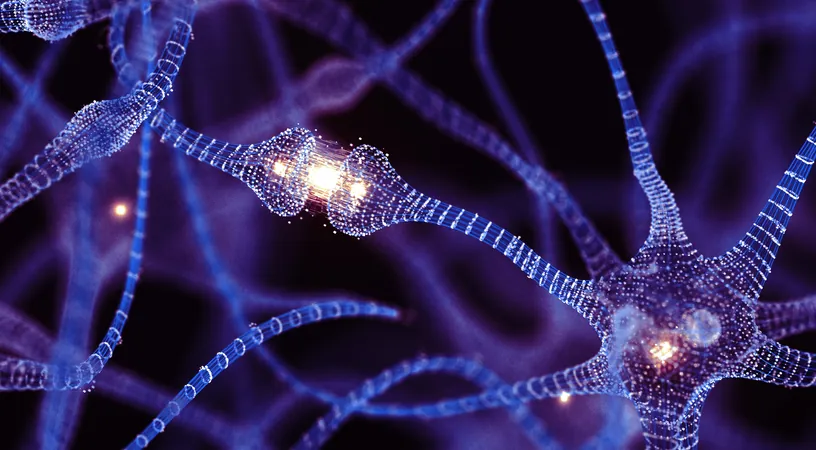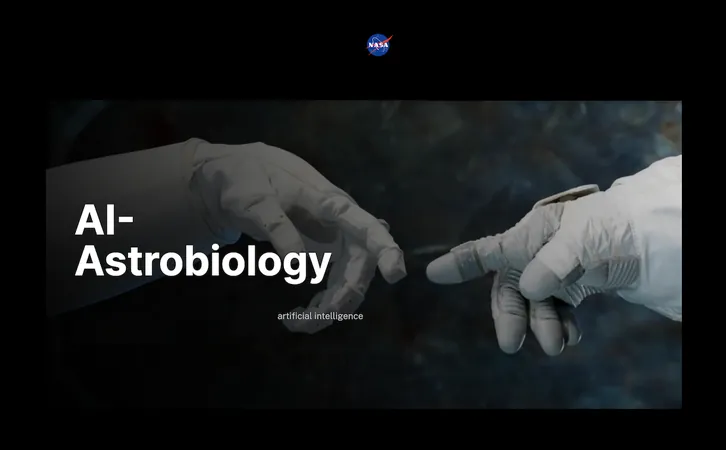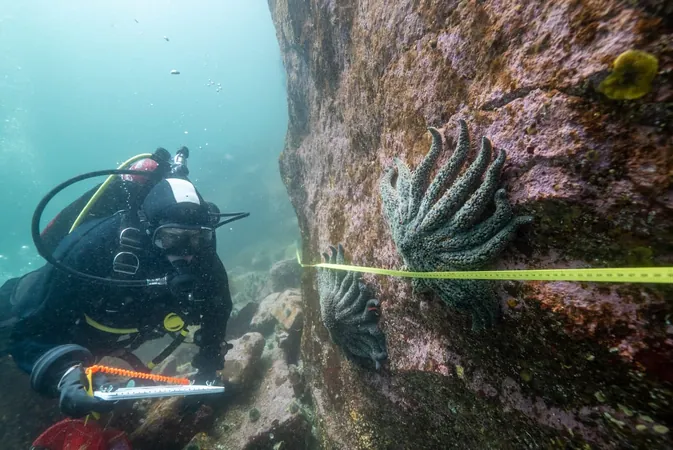
Shocking Discovery: Adults Can Grow New Brain Cells—The Game-Changing Research You Need to Know!
2025-07-03
Author: Nur
Groundbreaking Findings on Adult Neurogenesis
In a sensational breakthrough, researchers have revealed clear evidence that the human brain can continue to generate new neurons well into adulthood—potentially ending decades of debate in the field of neuroscience. This remarkable process, known as "neurogenesis," occurs primarily in the hippocampus, a key area responsible for learning, memory, and emotional regulation.
Marta Paterlini, co-lead author of the study from the Karolinska Institute in Stockholm, declared, "Our work definitively puts to rest the long-standing question of whether adult human brains can produce new neurons." Experts across the board are rallying behind the study, asserting it provides compelling support for the existence of neurogenesis in adults.
Innovative Technologies Pave the Way
The research harnessed advanced techniques such as single-nucleus RNA sequencing and sophisticated machine learning algorithms. These cutting-edge methods allowed scientists to meticulously analyze brain tissue samples sourced from international biobanks. While similar studies on animals like mice and primates have shown continuous neuron production, obtaining viable brain samples from adult humans has posed a significant challenge.
Paterlini noted, "Human tissue must be handled with extreme care—factors like the time before preservation and the methods used can obscure the presence of new cells." However, the innovative technologies employed enabled the team to sidestep these issues.
Key Discoveries: Cells Found in All Age Groups
The researchers scrutinized over 400,000 individual hippocampal nuclei from 24 individuals ranging from infants to the elderly, also examining additional brains through various methods. They successfully mapped the locations of new neuron cells, discovering clusters of dividing precursor cells adjacent to fully formed neurons.
Importantly, these dividing cells were not confined to younger individuals; they were also detected in teenagers and adults, indicating the presence of adult stem cells capable of renewing and differentiating into other brain cells. This remarkable find has implications for understanding brain health and recovery.
Implications for Brain Health and Disease
The implications of these findings could be monumental. Dr. W. Taylor Kimberly, chief of neurocritical care at Massachusetts General Brigham, remarks, "Identifying these cells is just the beginning. Understanding how they function could lead to innovations in tracking and treating neurological diseases like Alzheimer's." He envisioned the possibility of contrasting brain health in individuals with dementia against that of "super agers," who exhibit exceptional cognitive resilience.
Paterlini emphasized, "The fact that adult brains can sprout new neurons transforms our understanding of lifelong learning, recovery from injuries, and the untapped potential of neural plasticity." As research unfolds, the link between neurogenesis and cognitive health may unlock new avenues for therapeutic interventions.
A New Era in Neuroscience
As scientists delve deeper into this exciting territory, the potential for enhancing brain health and devising advanced treatments could change lives. The notion that adult brains are not static but rather capable of growth and repair is a revolutionary paradigm shift in neuroscience. Stay tuned as more groundbreaking revelations await!





 Brasil (PT)
Brasil (PT)
 Canada (EN)
Canada (EN)
 Chile (ES)
Chile (ES)
 Česko (CS)
Česko (CS)
 대한민국 (KO)
대한민국 (KO)
 España (ES)
España (ES)
 France (FR)
France (FR)
 Hong Kong (EN)
Hong Kong (EN)
 Italia (IT)
Italia (IT)
 日本 (JA)
日本 (JA)
 Magyarország (HU)
Magyarország (HU)
 Norge (NO)
Norge (NO)
 Polska (PL)
Polska (PL)
 Schweiz (DE)
Schweiz (DE)
 Singapore (EN)
Singapore (EN)
 Sverige (SV)
Sverige (SV)
 Suomi (FI)
Suomi (FI)
 Türkiye (TR)
Türkiye (TR)
 الإمارات العربية المتحدة (AR)
الإمارات العربية المتحدة (AR)